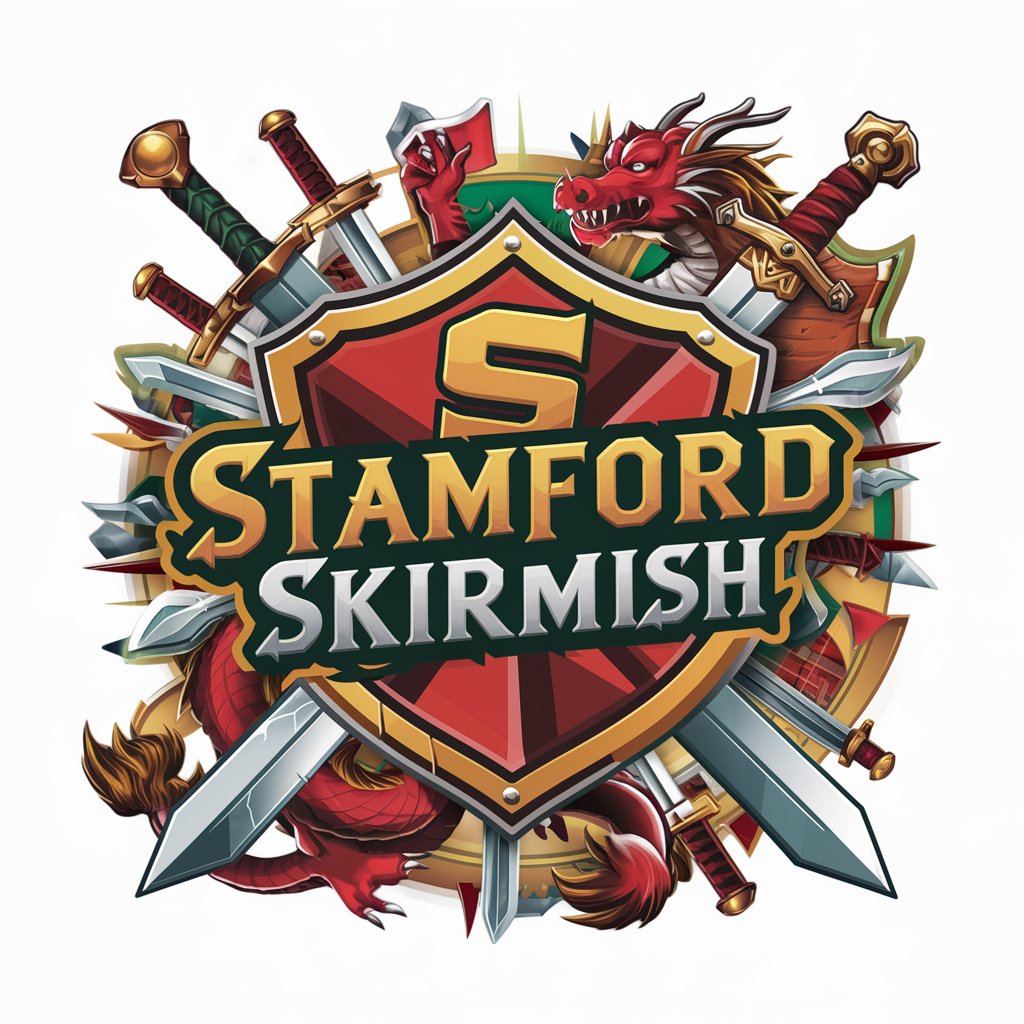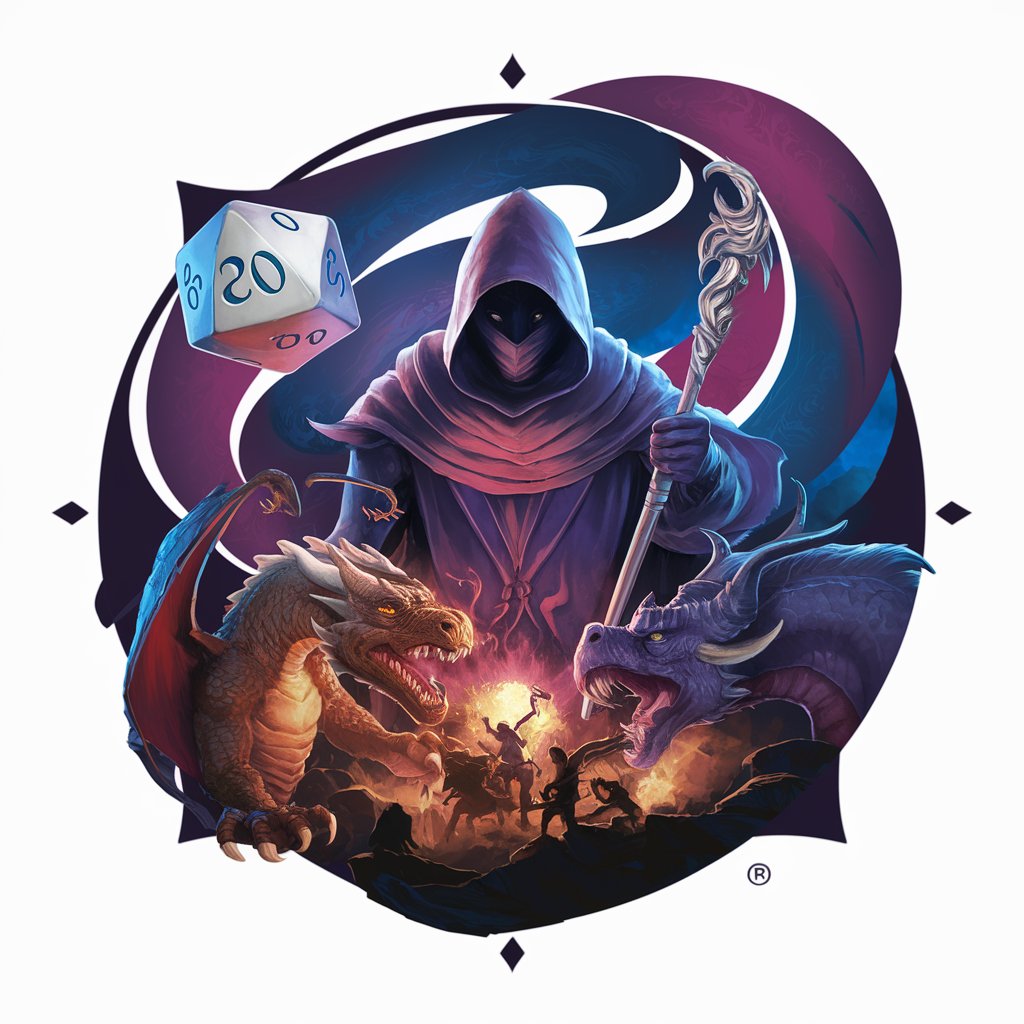Stamford Skirmish - Strategy Card Game

Welcome, Skirmisher! Ready to master the battlefield?
Strategize, Battle, Conquer with AI
What's the best strategy for a beginner to start winning matches in Stamford Skirmish?
Can you explain the abilities of the Dragon Knight card?
How can I build a balanced deck that focuses on defense?
What are the top three advanced tactics for experienced Stamford Skirmish players?
Get Embed Code
Stamford Skirmish Overview
Stamford Skirmish is a strategic, online multiplayer trading card game that draws inspiration from medieval times, particularly the battle of Hastings in 1066. The game is set in a 3D/2D environment, featuring characters from multiple blockchain platforms represented as NFTs. Players engage in turn-based battles using cards that represent five different characters (Archer, Gladiator, Knight, Mercenary, and Monk), each with five levels of rarity, from 1 star to 5 stars. The game mechanics are designed to blend strategy with a degree of randomness, where 75% of a player's score comes from their characters' starting attributes (Attack, Defense, Grit) and team synergy boosts, while the remaining 25% is determined by dice rolls. This unique setup encourages strategic team composition and card selection, offering a rich, engaging gameplay experience. Powered by ChatGPT-4o。

Core Functions of Stamford Skirmish
Strategic Gameplay
Example
Players must carefully select their team composition based on their characters' attributes and boost effects. For instance, a team with two Monks can significantly enhance an Archer's attack power, exploiting the Monk's ability to boost an Archer’s attack by 20%. This strategic depth requires players to think critically about how they assemble their teams.
Scenario
In a 5-card battle, a player might strategically choose to include a Monk and a Mercenary to boost a Knight's attack and defense, leveraging the synergy to overcome opponents with higher individual card attributes.
Multiplayer Battles
Example
Players engage in 1v1 battles, choosing between a 2-card or a 5-card game mode. The matchmaking system pairs players with similar average stats to ensure balanced and fair matches.
Scenario
A player selects a 5-card game mode and is matched with another player of similar skill level. They strategically deploy their cards, taking into account the opposing team's composition and the potential counter effects, like the Archer's ability to reduce a Monk's overall score by 25% in a duel.
Character Counters and Dice Rolls
Example
Each character has specific counters against another character, introducing an additional layer of strategy. The outcome of battles is also partially determined by dice rolls, adding an element of chance that can turn the tide in closely matched battles.
Scenario
During a battle, if a player's Gladiator is matched against an opponent's Mercenary, the Gladiator's presence reduces the Mercenary's overall score by 20%. After characters are chosen, both players roll dice, which can increase their total points by up to 30%, potentially changing the outcome of the battle.
Target User Groups for Stamford Skirmish
Strategy Game Enthusiasts
Players who enjoy deep, strategic gameplay and the challenge of out-thinking their opponents. They will appreciate the strategic depth offered by character selection, team boosts, and counter mechanics.
Trading Card Game Fans
Individuals with a passion for collecting and playing trading card games. These users will find the NFT-based card system appealing, offering a familiar yet innovative experience with the added excitement of blockchain technology.
Blockchain and NFT Collectors
Enthusiasts interested in the intersection of gaming and blockchain technology, especially those looking to expand their NFT collections. The game offers a unique opportunity to engage in strategic gameplay while owning collectible NFTs.

How to Use Stamford Skirmish
1
Visit classicrewards.io for a free trial without login, also no need for ChatGPT Plus.
2
Choose your game mode: Decide between a 2-card or 5-card battle based on your preference and strategy.
3
Select your characters: Based on the NFTs in your connected wallet, choose your team from the available characters, considering their stats and team boost effects.
4
Understand the matchups: Familiarize yourself with the counter effects between characters to strategize effectively in the arena.
5
Engage in battles: Use strategic combinations of characters and boosts to outmaneuver your opponent in the turn-based battles.
Try other advanced and practical GPTs
Xtax
Navigate Tax Law with AI

Mixology Master
AI-Powered Mixology Companion

Pizza Bij meaning?
Empowering Creativity with AI

Pizza Boy meaning?
Unleash Creativity with AI-Powered Insights

Home of Cricket
Craft Your Dream Team with AI Insight

Cricket meaning?
Unlock the secrets of Cricket with AI

Unreal Engine Mentor
Your AI-powered Unreal Engine guide

Dungeon Master's Canvas
Empower Your RPG Adventures with AI

Healthcare Research Paper Finder
Empowering Research with AI-driven Insights

Money Mentor Marvin
Empowering Financial Freedom with AI

Windows Registry Expert
Empower your Windows experience with AI-driven registry insights.

GptOracle | The Fine Dining Chef
Elevating Culinary Artistry with AI

Detailed Q&A about Stamford Skirmish
What is Stamford Skirmish?
Stamford Skirmish is a strategy card battle game set in medieval times, inspired by historical battles. Players use characters represented as NFTs on blockchain platforms to engage in 1v1, 2-card, or 5-card battles.
How do character boosts work?
Each character card can boost the attributes of other cards in the same team, but cannot boost themselves. For example, Archers increase the attack of Gladiators, while Monks can increase a character's attack or defense significantly.
Can I play Stamford Skirmish without NFTs?
While the game is designed around using NFTs for characters, there are mechanisms for free trials or demo modes on classicrewards.io, allowing new players to experience the game without immediate investment.
What are the counter effects in the game?
Certain characters have counter effects against others in the arena, affecting the outcome of battles. For example, a Knight reduces a Gladiator's overall score by 20%, which adds a layer of strategy in selecting your lineup.
How is the winner determined in Stamford Skirmish?
After applying team boosts, counter effects, and a dice roll for a chance modifier, the winner is the player with the last character standing in the arena, calculated by comparing the final cumulative scores of the battling characters.
